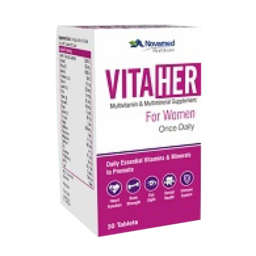
₨ 144.20

MBBS
Acupaz tablet 250 mcg 10×10’s
- Does this requires a prescription ? Yes
- Generic Name: Hyoscyamine
- Manufactured by : Glitz Pharma
- Drug Strength : 250 mcg
- Drug Form : Tablet
- Pack Size : 10x10s
- Product SKU : pg_298_354
Acupaz tablet contains Hyoscyamine | belongs to Anticholinergic
Alternate brands of Acupaz tablet 250 mcg 10×10’s
| Brand Name | Price | Savings |
|---|---|---|
| Peptard Drop 125 mcg/mL 10 mL | ₨ 23.00 | You can save 121.2 |
| Neopaz Drop 125 mcg/mL 10 mL | ₨ 23.00 | You can save 121.2 |
| Dosapaz Drop 125 mcg/mL 10 mL | ₨ 31.47 | You can save 112.73 |
| Anapaz tablet 125 mcg 20’s | ₨ 8.81 | You can save 135.39 |
| Anapaz tablet DS 250 mcg 100’s | ₨ 128.13 | You can save 16.07 |
How it works
Acupaz tablet 250 mcg 10×10’s works by decreasing the motion of the stomach and intestines and the secretion of stomach fluids, including acid.
Side effects
Major & minor side effects for Acupaz tablet 250 mcg 10×10’s
- Dry skin
- Constipation
- Difficulty in swallowing
- Blurred vision
- Increased heartrate rare
- Headache rare
- Loss of taste
- Nervousness
Uses of Acupaz tablet 250 mcg 10×10’s
What is it prescribed for?
-
Parkinsonian tremor
This medicine is used for controlling tremors that are caused due to relaxation of muscles in parkinson's disease.
-
Anticholinesterase poisoning
This medicine is used as antidote for toxicity or poisoning of anticholinesterase class of medicines.
-
Irritable bowel syndrome
This medicine is used to relieve symptoms such as abdominal cramps, stomach pain, diarrhea, indigestion, etc. associated with irritable bowel syndrome.
-
Peptic Ulcer
This medicine is used for the treatment of peptic ulcer disease by reducing visceral spasm and gastric secretion.
-
Urinary incontinence due to neurogenic bladder
This medicine is used for controlling urinary incontinence by contracting the bladder muscles in condition like neurogenic bladder (lack of bladder control due to nerve problem).
Concerns
Frequently asked questions
-
Onset of action
The effect of this medicine can be observed within 2 to 3 minutes of intravenous, intramuscular and subcutaneous administration of the dose, 5 to 20 minutes when administered through sublingual route and 20 to 30 minutes upon oral administration.
-
Duration of Effect
The effect of this medicine lasts for an average duration of 4-12 hours depending upon the route of administration.
-
Safe with Alchohol?
Consumption of alcohol is not recommended while receiving this medicine as it may increase the risk of dizziness. Avoid performing activities that need high mental alertness like driving a vehicle or operating heavy machinery if alcohol and this medicine are used together.
-
Is it habit forming?
No habit-forming tendencies were reported.
-
Usage in pregnancy?
This medicine is not recommended for use in pregnant women unless absolutely necessary. All the risks and benefits should be discussed with the doctor before taking/receiving this medicine.
-
Usage while breast-feeding?
This medicine is not recommended for use in breastfeeding women unless absolutely necessary. All the risks and benefits should be discussed with the doctor before taking/receiving this medicine.
When not to use?
-
Allergy
This medicine is not recommended for use in patients with a known allergy to Acupaz tablet 250 mcg 10×10’s or any other inactive ingredients present in the formulation.
-
Obstructive uropathy
This medicine is not recommended for use in patients with obstructive uropathy due to the increased risk of worsening of the patient's condition.
-
Myasthenia gravis
This medicine is not recommended for use in patients with myasthenia gravis due to the increased risk of worsening of the patient's condition.
-
Paralytic ileus
This medicine is not recommended for use in patients with paralytic ileus due to the increased risk of worsening of the patient's condition.
-
Closed angle glaucoma
This medicine is not recommended for use in patients with closed-angle glaucoma due to the increased risk of worsening of the patient's condition.
Warnings
-
Pregnancy
This medicine is not recommended for use in pregnant women unless absolutely necessary. All the risks and benefits should be discussed with the doctor before taking/receiving this medicine.
-
Breast-feeding
This medicine is not recommended for use in breastfeeding women unless absolutely necessary. All the risks and benefits should be discussed with the doctor before taking/receiving this medicine.
-
Kidney Disease
This medicine should be used with caution in patients with kidney diseases due to the increased risk of adverse effects. Close monitoring of kidney function, appropriate dose adjustments, or replacement with a suitable alternative may be required in some cases based on the clinical condition.
-
Liver Disease
This medicine should be used with caution in patients with liver diseases due to the increased risk of adverse effects. Close monitoring of liver function, appropriate dose adjustments, or replacement with a suitable alternative may be required in some cases based on the clinical condition.
-
Heart Diseases
This medicine should be used with caution in patients with heart diseases such as coronary artery disease, heart failure, hypertension, etc due to the increased risk of worsening of the patient's condition. Close monitoring of heart function, appropriate dose adjustments, or replacement with a suitable alternative may be required in some cases based on the clinical condition.
-
Hyperthyroidism
This medicine should be used with caution in patients with hyperthyroidism due to the increased risk of worsening of the patient's condition. Close monitoring of thyroid function, appropriate dose adjustments, or replacement with a suitable alternative may be required in some cases based on the clinical condition.
-
Driving or Operating machinery
Use of this medicine may cause blurred vision or dizziness in some patients. It is advised that you do not perform any activities such as driving a vehicle or operating machinery if you experience any of these symptoms during treatment with this medicine.
Dosage
-
Missed Dose
Oral forms: If a dose of this medicine is missed, take/administer it as soon as you remember. If it is almost time for the next dose, skip the missed dose. Do not double the dose to make up for the missed one. Parenteral forms: Since this medicine is usually administered by a qualified healthcare professional in the clinical/hospital setting, the likelihood of a missed dose is very low.
-
Overdose
Oral forms: Seek emergency medical treatment or contact the doctor in case of an overdose. Parenteral forms: Since this medicine is usually administered by a qualified healthcare professional in the clinical/hospital setting, the likelihood of an overdose is very low. However, emergency medical treatment will be instituted by the doctor if an overdose is suspected.
Interactions
Interaction with Medicines- Phenylephrine moderate
- Metoprolol moderate
- Potassium Chloride severe
- Acebutolol moderate
- Haloperidol moderate
- Promethazine moderate
- Chlorpheniramine moderate
- Ketoconazole moderate
- Potassium Citrate severe
General Instructions
Oral forms: Take this medicine exactly as instructed by the doctor. Do not take in larger or smaller amounts than prescribed. Seek emergency medical treatment in case of any severe side effects. Ensure that the course of treatment is completed. Do not stop the use of this medicine without consulting your doctor. Parenteral forms: This medicine is usually administered in the clinical/hospital setting under the supervision of a qualified healthcare professional. Follow all the instructions given by your doctor. Inform the doctor if you have a known allergy to this medicine. Report all your current medicines as well as your medical conditions to the doctor before receiving this medicine.
Other details
- Can be taken with or without food, as advised by your doctor
- To be taken as instructed by doctor
- May cause sleepiness
References
- medlineplus.gov - Hyoscyamine [Internet]. Available from: https://medlineplus.gov/druginfo/meds/a684010.html [cited 15/7/2020]. 2020
what are the adverse effects of Acupaz tablet 250 mcg 10×10’s?
Constipation, transient bradycardia (followed by tachycardia, palpitation and arrhythmias), reduced bronchial secretions, urinary urgency and retention, dilatation of the pupils with loss of accommodation, photophobia, dry mouth, flushing and dryness of the skin. Side-effects that occur occasionally include confusion (particularly in the elderly), nausea, vomiting and giddiness. Very rarely, angle-closure glaucoma may occur.
What happens if I miss a dose of Acupaz tablet 250 mcg 10×10’s?
DROP: The following dosage may be repeated every 4 hr. Adults: 20-40 drops. Children: 1-10 yr, 10-20 drops.
TABLET: Adults: 125-250 mcg may be given three to four times daily. Children: Not recommended.
One of the following licensed pharmacy from the nearest location will deliver Acupaz tablet 250 mcg 10×10’s. The details of the licensed pharmacy shall be shared once you request the drugs and the respective pharmacy accepts your request based on valid prescription and availability.
Questions and Answers
There are no questions yet. Be the first to ask a question about this product.
Related products
Products listed on medicalstore.com.pk are 100% genuine and sourced from licensed pharmacies.
We work hard to bring you unimaginable discounts without compromising on quality.
We uses SSL (standard security technology) to ensure data privacy of all our customers.





Reviews
There are no reviews yet.